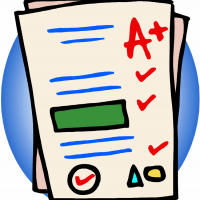
Tactical Super-Test (lite)
After reading your feedback for the Tactical Super-test that we had a couple of weeks ago (http://www.chess.com/article/view/classical-games-everybody-should-know-tactical-super-test), I learned 2 main things:
1) A majority of the readers enjoyed the test.
2) It was a little bit too difficult for most of the readers.
To tell you the truth, I expected that it was going to be a very difficult test. After all, the World Champion Lasker himself didn't pass it with a perfect score (as you remember he made some mistakes in the game). Also his opponent, who was British Chess Champion and called this game the finest he ever played was far from perfection too. So, you shouldn't be too hard on yourself for not being able to answer all (or any) questions correctly.
I think you should do similar tests on your own as well, since it is probably the best way to improve your tactical skills. Now let me use this opportunity to answer one of your questions.
UNiMEDiA asked:
You wrote: "All you need to do is get a well-annotated, complicated game played by two strong chess players and thoroughly analyze it." What good annotated books would you recommend?
Well, there are many books with well-annotated games (and remember, the game should have detailed annotations for you to understand what was really going on there). My personal favorite is Kasparov's "My Great Predecessors" series of books. You will learn a lot from the games played by the best players in chess history and also will enjoy annotations by one of the best players of all time.
Since I am planning to do more Super-tests in the future, as a preparation, I offer you today a much simpler version of a tactical test. I hope it will prepare you for our future Super-tests.
(Please remember that you can always replay the whole game from the first move and also see the annotations if you click "Solution" and then "Move list".)
We'll start with really simple ones and gradually increase the difficulty.






